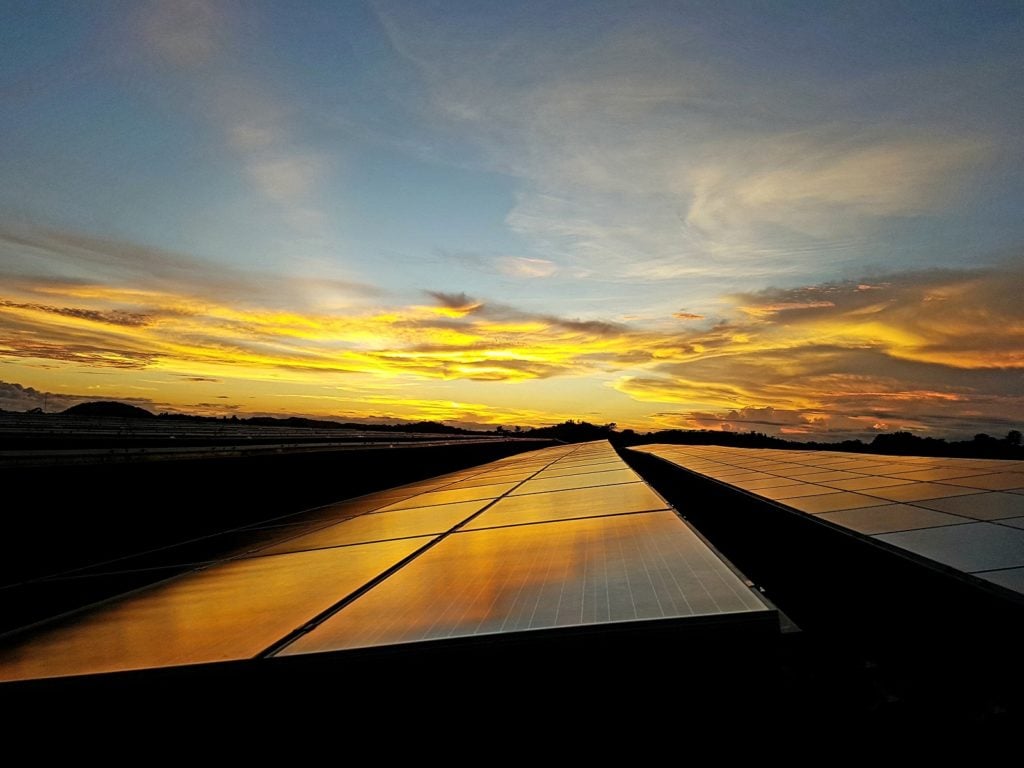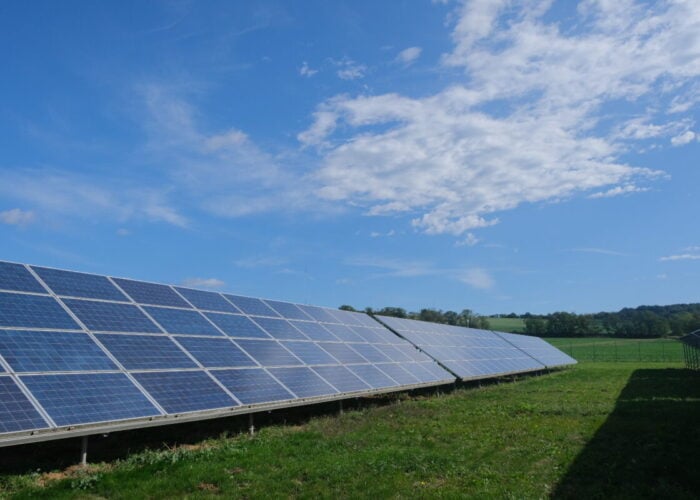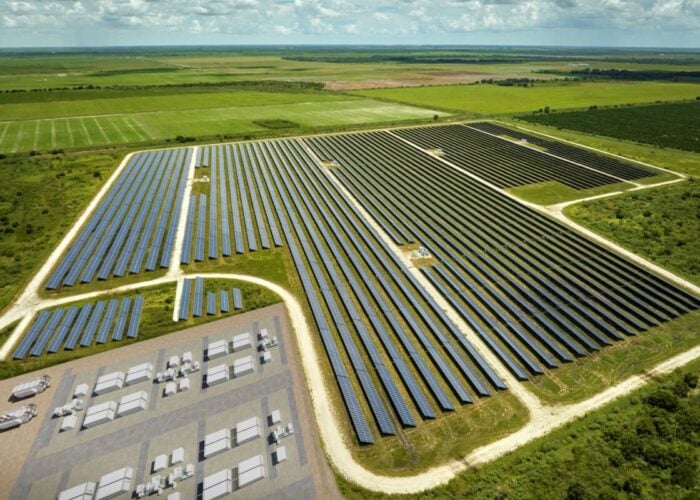
In 2020, corporate PPA announcements in Europe broke records despite the COVID-19 pandemic, with solar accounting for almost half of all PPA capacity contracted, which is significantly more than in previous years, demonstrating the rapid growth in the popularity of solar corporate PPAs in Europe. This article explores the corporate appetite for renewables, how their demand might outpace supply, and what we should do about this as a sector and in policy. More technically, we will look at how PPAs have evolved over time and the variety of contracts now on offer. We will also consider how PPAs have been streamlined; for example, through the EFET template contract. Overall, this article finds that the corporate appetite for renewable PPAs is insatiable at the moment, and with the right policy support and market mechanisms to help meet this demand, renewable PPAs can spearhead decarbonisation efforts around the world.
Corporate climate commitments are opening doors for massive renewable energy development. More than 280 companies across the globe are now part of RE100, committed to reaching a 100% renewable electricity supply. The overall electricity demand of RE100 companies equals more than Australia’s total electricity demand, and these companies are increasingly reliant on power purchase agreements (PPAs) to meet their procurement goals.[1]
Unlock unlimited access for 12 whole months of distinctive global analysis
Photovoltaics International is now included.
- Regular insight and analysis of the industry’s biggest developments
- In-depth interviews with the industry’s leading figures
- Unlimited digital access to the PV Tech Power journal catalogue
- Unlimited digital access to the Photovoltaics International journal catalogue
- Access to more than 1,000 technical papers
- Discounts on Solar Media’s portfolio of events, in-person and virtual
PPAs account for a quarter of the renewable power sourced by RE100 companies worldwide, and companies are benefiting from long-term price stability and the ease of investing in new renewable energy capacity. The popularity of PPAs has led to an impressive growth in global markets. According to BloombergNEF (BNEF), in 2020 alone corporations purchased a record of 23.7GW of renewable energy, up from 20.1GW in 2019. This growth is especially impressive given the context of the pandemic and a global recession.
Global growth
To date, the United States market leads on the numbers of PPA deals and capacity contracted. Last year, companies announced 11.9GW of corporate PPAs in the US. While the amount of renewable energy that was signed last year was less than in 2019, the country was not only deeply impacted by the pandemic, but companies also faced uncertainty on national energy policy before the presidential election.
Europe has also experienced significant growth in PPA activity. Last year companies signed a record 4GW of corporate PPAs in Europe, contributing to the over 12GW contracted since the European corporate PPA market started around 2014. Latin America continues as an emerging market with 1.5GW of corporate PPAs announced last year.[1]
Asia-Pacific markets have more challenging conditions for PPAs but signed a record 2.9GW in 2020. One notable outcome was Taiwanese corporations signing 1.25GW of PPAs in total. A new policy is on the way in Taiwan that means companies using over 5MW annual load of electricity are obliged to use clean power. This, and the large number of manufacturers who are facing pressure to green their industry due to decarbonisation targets, mean that renewables look well positioned to flourish in this market.
Besides Taiwan’s positive PPA developments, South Korea is widely predicted to be the next big player in the Asian PPA market. At the beginning of 2021, the Electric Utility Act was revised, and a green tariff program and PPA mechanism have been put in place. Companies in South Korea are also feeling mounting pressures due to decarbonisation demands.
BloombergNEF’s H1 2020 European Corporate PPA Price Survey reports that at 23.7GW, corporations purchased more clean energy in 2020, than ever before
Global markets are growing along with the decarbonisation ambition of many corporates. Despite the global pandemic, corporate clean energy purchasing was up 18% in 2020, which is a record figure considering the otherwise poor economic trends over the year. BloombergNEF’s H1 2020 European Corporate PPA Price Survey reports that at 23.7GW, corporations purchased more clean energy in 2020, than ever before. The figures are up from 20.1GW in 2019 and 13.6GW in 2018. The online retail company Amazon leads the race for the largest clean energy buyer in 2020, announcing 35 PPAs with a total amount of 5.1GW. More than half of the off-site PPA energy purchased by Amazon came from solar. Likewise, the top 10 global corporate clean energy buyers signed close to three times more solar PPAs in terms of capacity, compared to wind PPAs.
What’s driving demand?
Decreasing costs of renewable energy are further driving corporate demand to sign PPAs across Europe. The BloombergNEF Survey shows PPA prices generally declining across the EU, with significant regional variation, as PPA prices will depend on many factors, including technology, contract structure, and term length.
For all the reasons above, near-term corporate demand for clean energy may outpace supply. Policies are needed to remove barriers to PPAs and to encourage solar deployment to match demand with supply in a timely manner. According to BloombergNEF, the shortfall of clean electricity demand from the RE100 signatories would be approximately 224TWh by 2030, if they want to reach their 100% renewable energy targets. To put this in context, the electricity demand of the signatories of RE100 equals approximately 315TWh. Demand for renewable energy is growing faster than developers can supply. Policymakers must accommodate this demand with the right policies and strive to correctly implement regulations already in place.
SolarPower Europe is working to enable a more suitable policy framework for PPAs. To achieve this, SolarPower Europe co-founded the RE-Source Platform with WindEurope, RE100, and WBCSD. The RE-Source Platform is a European alliance of stakeholders representing clean energy buyers and suppliers for corporate renewable energy sourcing. The Platform pools resources and coordinates activities to promote a better framework for corporate renewable energy sourcing at EU and national level. The Platform works to remove barriers to PPAs. For example, to improve the traceability of green electricity for corporate consumers. Companies aiming for 100% clean electricity supply need to track the original source of their electrons and prove that the electricity they consume comes from a renewable source.
Guarantees of origin (GOs) provide this tracing of green electricity, and are key to a cost-effective and clean energy transition. For this reason, RE-Source advocates for the removal of barriers to GOs and to allow all renewable electricity generators to receive GOs for the green electricity they produce. If policies are aligned with EU and national climate and energy targets, and a wide range of corporate sourcing business models are made available without barriers across Europe, there is no reason corporate PPAs will not accelerate decarbonisation targets.
To help enable supply to meet demand, RE-Source members signed a joint declaration to EU policymakers to achieve the following four objectives:
- remove regulatory and administrative barriers to corporate renewable sourcing so the success of some EU countries can be replicated more broadly;
- provide corporates with clarity and certainty of long-term ownership of GOs from contracted supplies;
- encourage cross-border renewable energy transactions to maximise opportunities to deploy the most cost-effective renewable energy solutions, and;
- enable a wide variety of procurement models and market products, from on- and off-site solutions to multi-corporate renewable PPAs to minimise risks and maximise participation.
These calls are substantiated by the RE100 Progress and Insights Annual Report launched in December 2020, which also highlights the issues surrounding PPA development.
To further support corporates on their sourcing journey, RE-Source provides the Renewable Energy Buyers Toolkit, an open-source toolkit developed to provide information, raise awareness, and help companies enter the market for corporate sourcing. The Introduction to Corporate Sourcing of Renewable Electricity in Europe introduces the different types of PPAs available to European companies.
Virtual over physical
To date, most contracts in Europe have been signed for physical PPAs, which provide physical energy delivery. Virtual PPAs are an alternative contract structure recently growing in popularity. Virtual PPAs are financial contracts that do not include physical energy delivery; rather, the price for the underlying electricity is settled through a contract-for-difference (CfD) structure.
In Europe, companies may also seek to sign a cross-border PPA to access renewable energy outside their given market. Companies will need to carefully consider the type of PPA that is right for them according to their unique risk profile and needs. For example, corporations that use significant amounts of baseload power in a single location – like data centres – might prefer a physical PPA, while companies consuming lower amounts of electricity across multiple locations might find Virtual PPAs a better fit.
The RE-Source Platform also offers a template contract to adapt to the current demands and interests of renewable energy stakeholders looking for long-term procurement today. The standard contract, developed by EFET jointly with RE-Source, allows for both physical and virtual PPAs, and helps bring down transaction costs and facilitate the negotiation process. Despite being standardised, the EFET template contract is also flexible and ready for adjustments depending on the nuanced needs or setting of a specific agreement. Despite having been operation since 1999, the EFET had a new template released in 2019 to adapt to the current demands and interests of renewable energy stakeholders looking for long-term procurement today. The goal of the EFET is to offer standardised solutions for typical factors in wholesale transactions anywhere in European energy markets; for example, aspects of contracting or data exchange. As the EFET template is gaining traction with utilities, the template will provide a faster and more streamlined method for PPA contract closure. The agreement is translated into multiple EU languages to ease its uptake across Europe.
The RE-Source Platform also promotes successful national models for corporate procurement. Spain provides an excellent current example. European solar PPA prices are the lowest in Spain at €35.6/MWh,[1]leading to rapidly expanded market activity. Last year, companies announced contracts to purchase more than 1.3GW of clean energy in Spain, with solar power accounting for more than 1GW of that total, making it the largest European solar PPA market. In addition, the energy company Total acquired 3.3GW of solar projects in Spain and has contracted the output of around 3GW to power their own European industrial operations. The boom in Spain has been driven by a combination of favourable solar economics and accessible solar resources and land, with investors and off-takers from across Europe contributing to signing new deals. Less sunny regions are also attracting attention to solar PPAs. BayWa r.e. and HeidelbergCement, one of the world’s leading building construction materials companies, signed Poland’s first solar corporate PPA this year. This is great news since it proves that subsidy-free solar is attractive and competitive, even in a country further north than sunny Spain.
In conclusion, the European PPA market has the possibility of fulfilling its potential, with interest from corporates growing, and guidance on best practices being avidly exchanged on platforms like RE-Source. Different corporate sourcing models also mean that a PPA can be adapted to the needs of each individual customer, and developments like the EFET template contract can help to streamline the contractual process. The corporate appetite for renewable PPAs is ever growing, and with the right policy arrangements, renewable PPAs in Europe, and around the world, will be key to achieving decarbonisation targets.
References
[1] Reference: www.there100.org/growing-renewable-power-companies-seizing-leadership-opportunities
2 Reference: https://about.bnef.com/blog/corporate-clean-energy-buying-grew-18-in-2020-despite-mountain-of-adversity/
3 Reference: https://pexapark.com/blog/european-ppa-market/
Authors
Dr. Mercè Labordena
Mercè is the senior policy advisor at SolarPower Europe for Solar Digitalisation, Finance and Corporate Sourcing of Renewable Energy. She oversees the activities of the RE-Source Platform, the European alliance of stakeholders representing energy buyers and suppliers for corporate renewable energy sourcing, where she coordinates with stakeholders and other associations the promotion of corporate sourcing of renewable energy in Europe. Mercè has a PhD in Climate Policy from ETH Zurich, and a Double Degree MSc in Renewable Energy, with a specialisation in Energy Innovation and Energy Engineering.
Milena Koot
Milena assists in providing external communications and maintaining the engaging digital presence of SolarPower Europe. This includes contributing to and supporting the execution of political communications campaigns around policy and industry.







